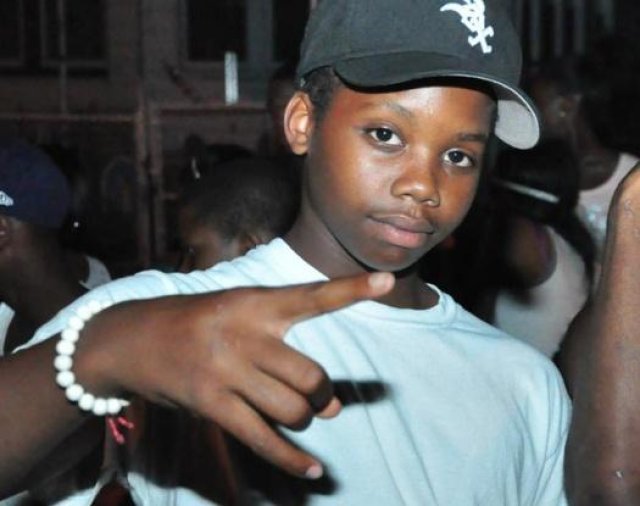
The NYPD has murdered another young Black man, and now the cops are trying to smear his name to justify their actions. But activists and members of the community where the victim lived have seen how police murder with impunity -- and they're speaking out.
After two plainclothes officers shot and killed 16-year-old Kimani "Kiki" Gray late on March 9, anger rippled through the East Flatbush section of Brooklyn and the broader New York activist community. A vigil two nights later grabbed headlines when a crowd of young people from East Flatbush angrily confronted police.
'Riot'
Some news outlets described the protest as a "riot," citing reports of broken bottles, upside-down trashcans and broken shop windows. But a live stream and the voices of those in attendance give a different picture: close to 100 angry young people who were surrounded by police for taking to the streets in protest.
As one attendee wrote on Twitter: "The only thing that makes it a #brooklynriot is the riot police."
The real story of the "riot" is the frustration of people who have every right to be angry at police. Gray was killed in a barrage of 11 bullets fired by two undercover officers who were in an unmarked car.
According to the NYPD, the teenager "adjusted his waistband and continued to act in a suspicious manner." The police claim Gray had a gun that he pointed at the officers before they opened fire.
But witnesses to the shooting tell a different story. One said Gray was "running for his life" and telling the police to "stop." Another man, who was with Gray, says he had no idea the shooters were even cops--and that they didn't identify themselves.
Yet another witness claims she heard Gray begging the officers not to let him die -- and one of the officers responded, "Stay down, or we'll shoot you again." An ambulance arrived at the scene, but the teenager died en route to Kings County Hospital.
Smear tactics
In the aftermath, the NYPD turned to a tried-and-true tactic: smear the victim to deflect attention from the murderous behavior of its officers. The cops are portraying Gray as a hardened gang member with an "extensive" criminal record. But the undisputed fact is that he was only 16, and he was heading home from a baby shower that night.
The "probable cause" in this case is that Kimani Gray was Black while adjusting his belt. No criminal record, no piece of clothing and no physical movement can justify the 11 shots from the cops' high-powered weapons.
Residents of neighborhood know all too well that the 67th Precinct has a long record of abuse and brutality. Gray's killing took place only a few blocks from where police murdered Shantel Davis less than a year ago.
Two cops followed the 23-year-old East Flatbush resident until she crashed into a minivan. Then one of the cops shot her in the chest as he dragged her out of the car.
Key questions
The 67th Precinct is notorious among Brooklyn residents for its abuse of power. But even setting aside the local details, anyone familiar with the NYPD's record of killing Black and Brown New Yorkers should be asking some important questions:
-- Why should anyone take the word of the police? This is the same force that blatantly lied about the circumstances surrounding the murder of 18-year-old Ramarley Graham in February 2012.
-- Even if Gray belonged to a gang, does that make it alright for police to gun him down in the street?
-- Is adjusting your waistband sufficient cause for police to open fire on a Black teenager -- or is this merely another case of racial profiling in a department where hundreds of predominantly minority youth are subject to the "stop-and-frisk" program every day.
-- Finally, why should Black New Yorkers feel anything but contempt and anger toward the police? The NYPD has proven time and again that it is concerned with protecting their own, not keeping neighborhoods of color safe.
Gray's family is calling for another vigil this week to draw attention to the tragedy. Kimani Gray was not the first young Black teen in East Flatbush to be targeted by police.
But this is exactly why his death has struck a chord with so many people who are sick and tired of the racism that follows them down the block every day.
[Reprinted from US Socialist Worker.]
